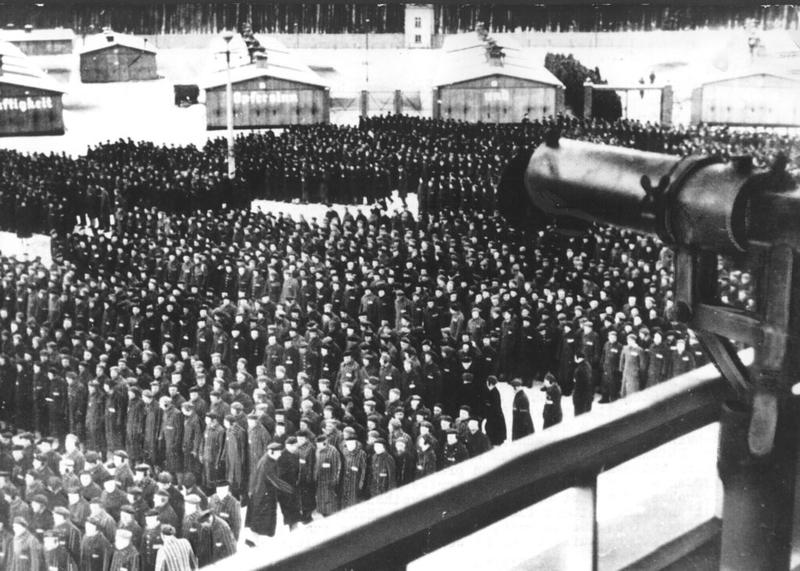 This undated file photo shows a roll call, in the early morning or late evening hours, on the roll call square in front of the camp gate of the Nazi concentration camp Sachsenhausen in Oranienburg on the outskirts of Berlin, Germany. (PHOTO, FILE / AP)
This undated file photo shows a roll call, in the early morning or late evening hours, on the roll call square in front of the camp gate of the Nazi concentration camp Sachsenhausen in Oranienburg on the outskirts of Berlin, Germany. (PHOTO, FILE / AP)
Prosecutors in Germany have confirmed that a 100-year-old man accused of being a Nazi concentration camp guard will stand trial in October, 76 years after the end of World War II.
The elderly man allegedly served as a guard at the Sachsenhausen camp near Berlin, and is accused of complicity in more than 3,500 murders there between 1942 and 1945.
The defendant, who is not named under national privacy laws, underwent a medical assessment and was deemed fit to take part in the proceedings for up to 2.5 hours per day, said prosecutors to German newspaper Welt am Sonntag.
Thomas Walther, a lawyer representing some of the victims in the case, was quoted by the newspaper as saying that many of the complainants were "just as old as the accused and expect justice to be done".
A spokesperson for the district court of Neuruppin town, which first brought the charges in February, said the man is accused of complicity in the execution by firing squad of Soviet prisoners of war in 1942 and the murder of prisoners using the poisonous gas Zyklon B.
Landmark conviction
More than 200,000 prisoners were held at the Sachsenhausen camp, with tens of thousands dying as a result of hunger, disease, forced labor and mistreatment, according to Deutsche Welle News.
They were victims of systematic extermination operations by the Nazis, as stated on the Sachsenhausen Memorial and Museum website.
Sachsenhausen was established in 1936 as the first new camp under the control of the Nazi paramilitary organization known as the SS. It was intended to be a model facility for the network of camps the Nazis built across Germany, Austria and occupied territories.
Germany has been pursuing former Nazi camp workers since the landmark conviction of John Demjanjuk in 2011, which set a precedent that working in a concentration camp was found to be grounds for culpability with no proof of a specific crime.
Demjanjuk was a guard at the Sobibor death camp in Nazi-occupied Poland, and was convicted on almost 30,000 counts of accessory to murder.
Prior to the 2011 case, courts had required evidence of direct involvement in crimes.
jonathan@mail.chinadailyuk.com


